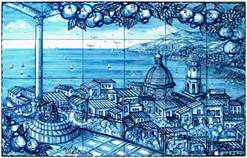Speaker
Ms
Julia Künzel
(Darmstadt University of Technology, Radiation Biology and DNA Repair, Darmstadt, Germany)
Description
Misrepair of DNA double-strand breaks (DSBs) can lead to chromosomal translocations, a driving force in carcinogenesis. DSBs induced by exogenous agents such as ionizing radiation (IR) are repaired with fast and slow components representing repair events in euchromatin and heterochromatin, respectively. The fast component involves canonical non-homologous end-joining (c-NHEJ) in G1- and G2-phase. The slow component represents homologous recombination in G2, but its nature in G1 was unclear. Here, we show that DSBs repaired with slow kinetics in G1 undergo CtIP-dependent end-resection, although the extent of resection is much more limited than in G2. This CtIP-dependent component involves the c-NHEJ factors Ku70/80, DNA-PKcs and LigIV. Thus, wild-type (wt) G1-cells repair DSBs by two c-NHEJ processes, a fast CtIP-independent and a slow CtIP-dependent process. To investigate how these two processes contribute to the formation chromosomal translocations in G1, we used premature chromosome condensation (PCC) combined with three-color fluorescence-in-situ-hybridisation (FISH). In wt cells, some translocations are formed with fast kinetics but most translocations arise with slow kinetics. CtIP depletion does not affect translocation formation of the fast process but diminishes translocation formation of the slow process. Hence, CtIP-dependent c-NHEJ contributes substantially to the formation of radiation-induced translocations which, however, can also arise by CtIP-independent c-NHEJ. Interestingly, although most DSBs and chromosome breaks (>80%) are repaired with fast kinetics, the majority of translocations form at later times with slow kinetics. This demonstrates that slow CtIP-dependent c-NHEJ is more error prone than CtIP-independent c-NHEJ.
Author
Ms
Julia Künzel
(Darmstadt University of Technology, Radiation Biology and DNA Repair, Darmstadt, Germany)
Co-authors
Prof.
Markus Löbrich
(Darmstadt University of Technology, Radiation Biology and DNA Repair, Darmstadt, Germany)
Dr
Olivia Barton
(Darmstadt University of Technology, Radiation Biology and DNA Repair, Darmstadt, Germany)
Prof.
Penny Jeggo
(University of Sussex , Genome Damage and Stability Centre, Sussex, UK)
Dr
Sandro Conrad
(Darmstadt University of Technology, Radiation Biology and DNA Repair, Darmstadt, Germany)

